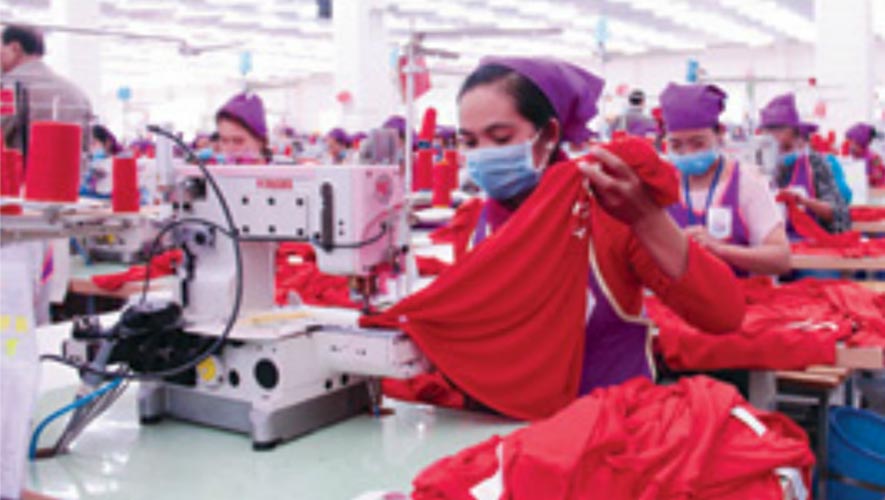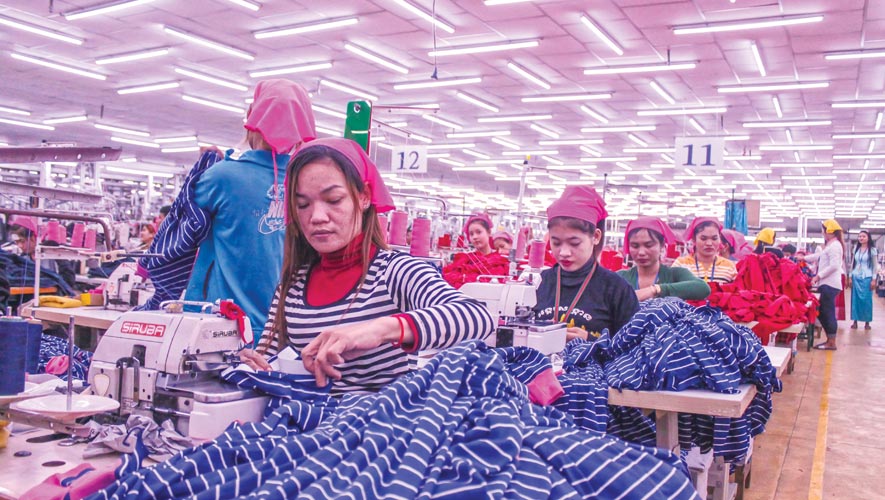In the past two decades, Cambodia’s low middle income economy has experienced exponential growth but to sustain, diversification and more have to be the key that ensures it.
For the latest Cambodian Business news, visit Khmer Times Business
International Monetary Fund (IMF) Cambodia resident representative Yong Sarah Zhou says despite recent progress in diversification, the Kingdom continues to depend on one major export, namely garment to European Union and the US, for the bulk of its earnings.
“Looking ahead, there is still ample scope to upgrade the quality of Cambodia’s existing export basket. The country should introduce higher value-added export products, not only in manufacturing but also in agriculture, to expand to other export markets,” she adds.
Having said that, several challenges such as infrastructure, skills gap and logistics hinder Cambodia from benefitting from trade agreements.
American Chamber of Commerce Cambodia chairman Allen Dodgson Tan believes that the nation is in a perfect position to take advantage of the current global dynamics, and attract diverse foreign direct investment. For instance, existing incentives can already attract business. It is just a matter of full implementation.
“Cambodia needs to continue working towards becoming the best business place in Asean. Of course, this involves infrastructure but equally important is streamlining government processes and ensuring full transparency in compliance with costs and procedures,” Tan says.
Echoing him, US Embassy in Cambodia charge d’affaires Michael Newbill says rule of law, transparency, and providing a level playing field for investors are key factors to attracting increased trade, investment and more diversified economic partnerships.
He says outdated infrastructure such as machinery does increase the cost of operation for companies in the Kingdom and this can result in products that might be less competitive than products in other countries with well-developed infrastructure.
Relating to this, Newbill adds that cost associated with high electricity prices or logistics overhead make it harder for Cambodia to diversify its exports because the products are less competitive.
“Infrastructure is a challenge but that is normal for developing countries but I would argue that Cambodia is ready to begin the process of diversification. It can support some investments now, and can continue to work towards supporting the greater industrial transition.
“As we know the free market can be messy at times and I think it is important to make moves forward even if the conditions are not perfect. As the demand signals increase, we need to continue assisting policymakers to ensure they are ready to respond effectively,” he says via email.
The other worry is that Cambodia suffers from shortage of labour. Although it does not necessarily prevent the country from entering into trade agreements, the government should address this challenge when engaging in bilateral deals.
Tan says that skilling a workforce is critical. He has been personally involved in the STEM (science, technology, engineering and mathematics) course with the government for years.
“I believe that Cambodia needs to move fast in delivering quality labour to the job market if it wants to keep up with its Asean counterparts.
“The government should create solid pathways from secondary school to employment that do not require students to undergo four years of tertiary education system,” he adds.
Other measures that can see a growth in skills set is through tax incentives for businesses that invest in apprenticeship or formal mechanisms for entry level technical training.
Yong agrees that primary focus of government policies should be on high-quality investment policies for infrastructure, education and skills, and structural reforms aimed at facilitating international trade and improving the business environment.
She says that cross-country empirical evidence points to reforms like openness to trade and raising provisions of financial services that have proven effective in promoting diversification and structural transformation in low-income countries.
Meanwhile, Newbill opines that the commercial court system, currently in the works, is critical in supporting the legal aspects of business in the Kingdom where strong mechanisms for swift, strong and fair dispute resolution are important to businesses.Cambodia also needs to work on the fundamentals such as power, logistics and the cost of doing business until it becomes by far the best choice in Asean when looking to set up a regional operation.
“We also need to spread the word to the rest of the world that Cambodia is open for business and it is ready to be a (business) partner,” he adds.




